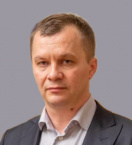
Event Recap: A View From Kyiv – A Conversation with Minister Tymofiy Mylovanov
On April 1, the American Security Project hosted an event titled “A View From Kyiv – A Conversation with Minister Tymofiy Mylovanov.” Dr. Tymofiy Mylovanov, President of the Kyiv School of Economics and former Minister of Economic Development, Trade and Agriculture of Ukraine, joined ASP CEO Patrick C. Costello to provide a first-hand account of the war in Ukraine and the situation in Kyiv.
Discussing the situation in the country, Mylovanov stated that the security situation required constant movement due to regular air raids and that civilians had become used to the continuous bombardment and air raids. He also noted the challenge posed by a lack food and water for those seeking shelter.
Costello inquired as to whether the assistance provided by the West—financial, military, and humanitarian support—was sufficient and what more was required. Mylovanov replied that the Ministry of Finance needs approximately $2-8 billion per month in financial support. While the government is still collecting taxes, the revenue is much smaller, leaving a significant funding gap for the government. Mylovanov warned that conditions placed on aid packages could be harmful to Ukraine, constraining their ability to function through the war and thus benefit Russia. The Ukrainian people also need shelter, and the West must start thinking about reconstruction efforts and how to underwrite war risks. Militarily, Ukraine also needs helicopters and air defense systems. Mylovanov understood that training is required for these advanced weapon systems but contended that training should begin now so that Ukrainians could adequately defend the country in coming months as the war unfolds.
Ukraine is the “breadbasket of Europe,” and Costello asked about the spring planting season for agricultural products. Mylovanov stated that Russia is attempting to prevent Ukraine from competing in the global food market. There is a significant disruption in the supply chain to an estimated five million tons of grain. If there is no planting by the end of April, there will be long-term consequences for Ukrainian agriculture and global food supplies, most notably in the Middle East. Costello agreed that there are second-order effects that impact global instability far away from Ukraine.
Costello also asked about Mylovanov’s views on Biden’s statement that Putin cannot stay in power. He replied that the reaction in Ukraine is not as adverse as it is in the West. Noting Russia’s sources of power, he stated that while Russia can use its military and nuclear force to expand its sphere of influence, its global economic power is lacking compared to other superpowers. Eventually, the regime must be decoupled from using these tools, especially with Russia’s nuclear arsenal, if there is to be a long-term peace.
Costello concluded by asking Mylovanov’s view on the ongoing talks in Turkey and whether this would be acceptable for the Ukrainian people. Mylovanov is worried that the peace agreements and possible ceasefire agreements would provide Putin time to rearm and prepare for another attack. In his eyes, the only conclusion to this invasion would be a decisive victory for the Ukrainian army.





